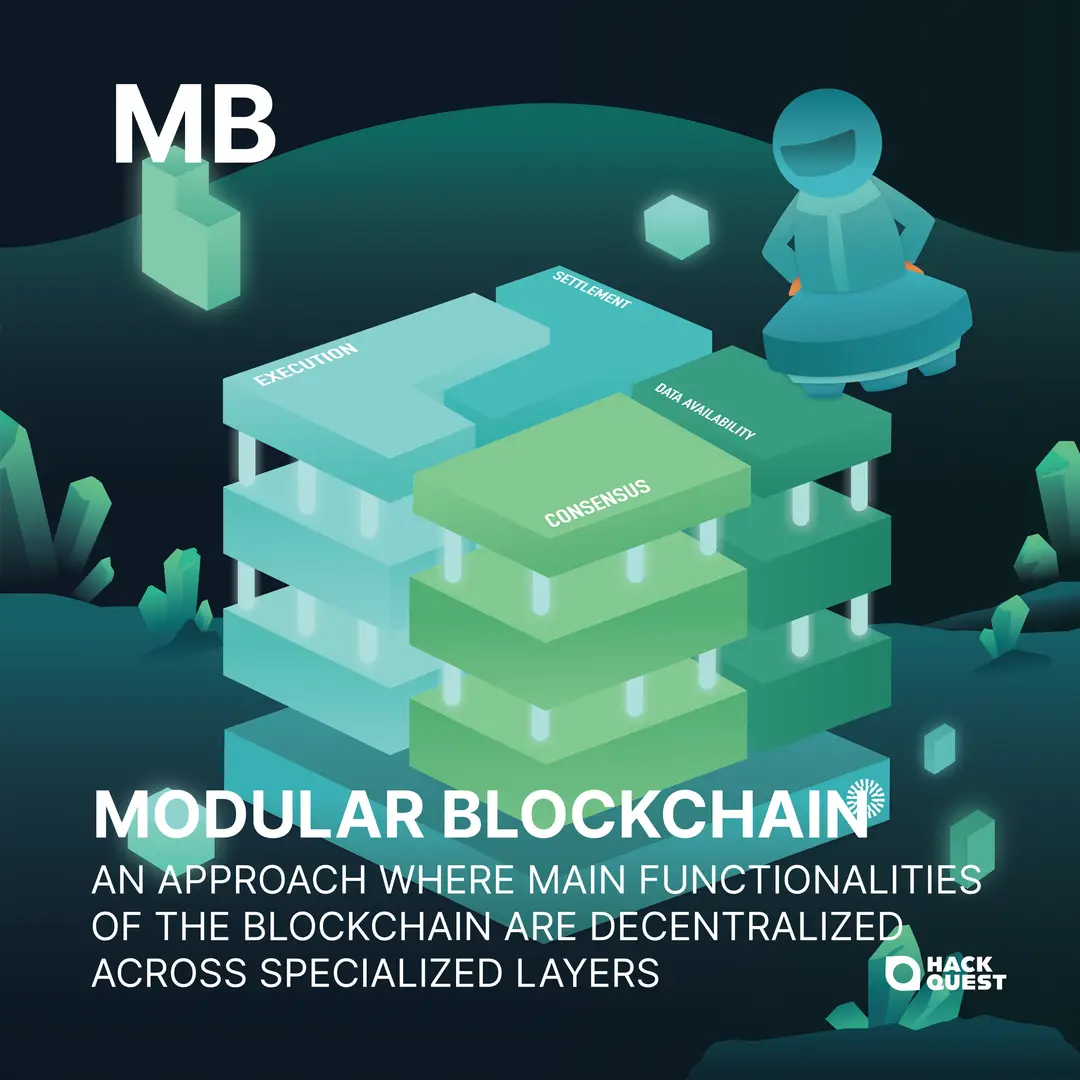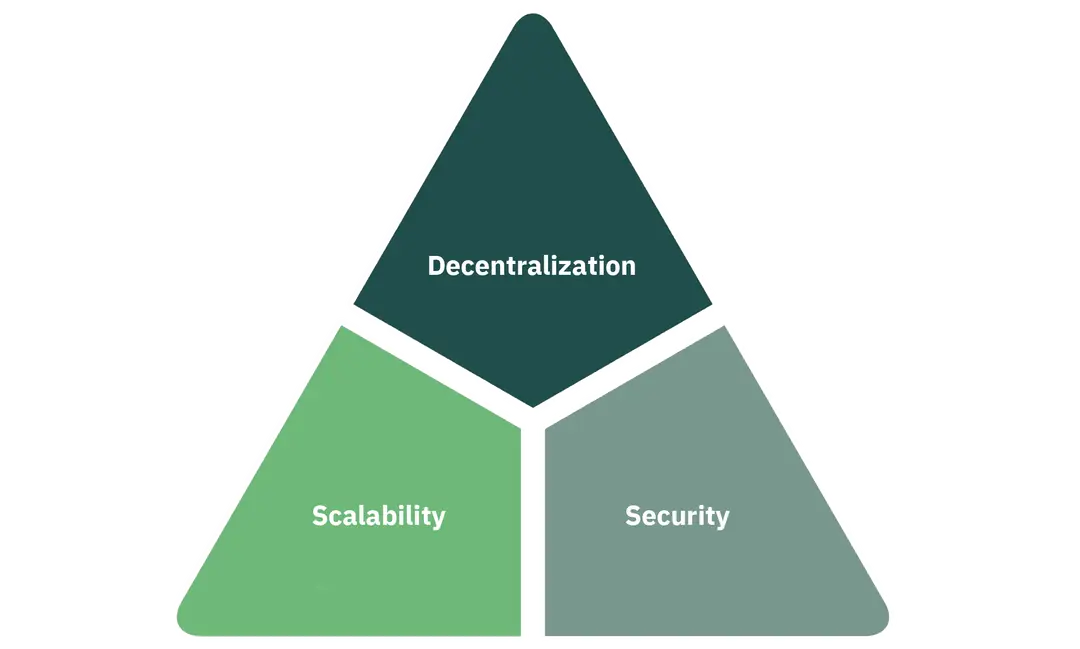Welcome to the world of Web3, where cryptocurrencies, blockchain, and a unique culture converge. Entering the world of Web3 can be both thrilling and overwhelming, especially when faced with the seemingly cryptic language used by enthusiasts. Don't worry if you feel they sound like some secret codes, we are here to unravel their meaning in Web3 context. In this article, we are going to introduce [Modular Blockchain].
What Does 'Modular Blockchain' Mean?
A modular blockchain is a type of blockchain architecture that separates the various functions of the blockchain into different layers or modules. This approach contrasts with traditional, monolithic blockchains, where all processes (consensus, data storage, and execution) occur on a single layer, which can lead to congestion and scalability issues.
The Origin of Modular Blockchain
The concept of modular blockchains emerged from the need to overcome the limitations faced by early blockchain networks, often referred to as the "blockchain trilemma." This trilemma posits that blockchains must balance between decentralization, scalability, and security, but achieving all three simultaneously is challenging. Modlar blockchains propose a solution by dividing these responsibilities among different layers, allowing each to specialize and optimize for one aspect without compromising the others.
How Do Modular Blockchains Work?
Mechanism: In a modular blockchain, the architecture is typically divided into at least three core modules:
This layer is responsible for network security and agreement on the state of the blockchain. It determines how transactions are verified and added to the blockchain.
This module focuses on storing data and ensuring that it is accessible to all network participants. It helps in maintaining transparency and integrity.
Here, smart contracts and transactions are processed. This separation allows for more efficient computation and the ability to upgrade or change the execution environment without affecting the other layers.
Why are Modular Blockchains Important?
Scalability and Efficiency
By compartmentalizing functions, modular blockchains can process transactions more efficiently than traditional blockchains. This structure allows for scalability improvements, as each layer can be optimized independently.
Flexibility and Upgradability
Modular architectures offer the flexibility to upgrade or change certain components without disrupting the entire network. This adaptability is crucial for the long-term sustainability and evolution of blockchain technology.
Separating the consensus mechanism from transaction execution can enhance security. For example, even if the execution layer is compromised, the consensus layer remains unaffected, safeguarding the network's integrity.
Examples of Modular Blockchains
A notable example of a project working towards a modular blockchain architecture is Ethereum's transition to Ethereum 2.0, which includes sharding to distribute the network's load across multiple chains (shards). Another example is Polkadot, which uses a central relay chain for security and consensus, allowing attached parachains to handle specialized tasks like smart contracts or data storage.
Modular blockchains represent a significant evolution in the blockchain landscape, offering a promising solution to the blockchain trilemma by enhancing scalability, security, and efficiency. As this technology matures, it could pave the way for more robust, versatile, and scalable blockchain networks, further expanding the potential applications of Web3 technologies. Understanding modular blockchains is essential for anyone looking to grasp the future direction of blockchain development and its implications for decentralized systems.
If you would like to learn more about slang in Web3, let’s explore more in our HackQuest Web3 Glossary!

